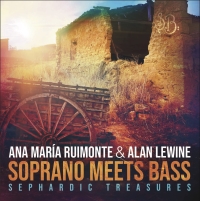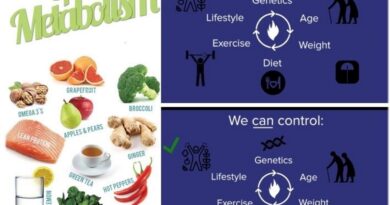Looking for our origins
by Ana María Ruimonte
Translated into English by Alan Lewine
“Civilizations evolve but never die. They are our roots.” Juan Ramón Jiménez.
Soprano meets Bass: Sephardic Treasures
Alan Lewine and I founded Soprano Meets Bass to link our cultures going back to the past, looking for our origins and bringing the present to light by means of modern musical settings.
The “Romancero Sefardí de Oriente” fell into our hands. It contained the songs of women in ladino. The Sephardim were expelled from Spain in 1492 and their songs traveled with them. These songs were transmitted by oral tradition from mother to daughters through the centuries. We studied and chose a group of these secular songs and, maintaining the traditional melodies and lyrics, together we created new arrangements.
I imagined some of these songs sung by women in a small town in Castille, in Spain, dressed in black with scarves on their heads and lace under their chins, a bit untidy, living among hens and sheep, milking goats, selling eggs and milk, or sewing in the late afternoon while sitting in the doors of their homes, on chairs made of wicker and wood, talking about everything. Illiterate women but having deep knowledge and curiosity for everything in their lives. Women who sang on the way to get water from the fountain, or while washing or sewing, with high voices that carried far, nearly shouting, and resounding while walking over a stony way, whose echoes passed through windows and doors so everybody could hear their singing… functioning as the radio broadcasts of those times. I also imagined men singing through their teeth with a smile as they worked, singing fast scales, trills and never-ending melodies, while they passed walking with canes in their hands banging against the floor, while they shepherded their flocks, or led their donkeys loaded with country goods, or while laboring the lands… Men who worked from sunrise and walked with shoes made of straw and wearing caps, or who sat to rest in the shadow of an oak or to have a wine with their friends in the bar in town…
 But also, many of those songs show a different and refined life in a city or in the country, in medieval palaces or at the feet of castles, where the queen or the dame was alone most of the time, in an elegant yet medieval kind of aristocratic world.
But also, many of those songs show a different and refined life in a city or in the country, in medieval palaces or at the feet of castles, where the queen or the dame was alone most of the time, in an elegant yet medieval kind of aristocratic world.
Wars, murders, captives, cheats, difficult men and women, innocent children, powerful men … The waters of the fountain or the water boiling in the pot of the kitchen, the river carrying fish and sometimes gold, the water to wash clothes that can be made of wool or silk, high or low quality clothes, elegant renaissance houses and great palaces, rings as wealth and for binding marriage, the babies, the wives and husbands, the embroidered clothes and tapestries, domestic animals such as dogs or cats, pigeons or horses, hunting birds and dusty lands … All these speak to us of the medieval times.
Three years ago, we jumped into the adventure of recording in a studio in Brooklyn with Julián Vaquero, Shai Wetzer, Duane Eubanks, Alicia Svigals, Hadar Noiberg and Chano Domínguez. We finished the project with Víctor Monge in Spain and with Yonnie Dror in Israel. And thus, Sephardic Treasures was born. All the musicians contribute bringing a variety of different styles in jazz, flamenco, Middle Eastern, and the sounds of the nature, while the bel canto leaves the lyrics and melodies of those times mostly intact as recovered and notated from the 20th century oral tradition by various ethnomusicologists.
In the romances I distinguished several characters and voiced them to give them each their own personality. The king, sometimes furious, others sad; the unfaithful queen who was at the same time beautiful and naive; the lover, with his feet on the ground; the talkative ghost of a murdered child and his evil mother; the beautiful captive Moorish girl and the young man who rescues her to finally discover that he is her brother; the beautiful Jimena who is a Castilian woman with strong character who is a straight talker, who dared to demand justice from the king. And that warrior daughter who goes with her father to fight and win the war of Aragon and after she is exposed as a woman marries the enemy leader … These songs tell us that love can make justice and achieve peace through bravery, fidelity and compromise.
With the jazz trumpet of Duane Eubanks we move from Seville to the Birdland jazz club in New York, the flamenco guitar of Julián Vaquero places us in the Alhambra in Granada, Víctor Monge’s percussion takes us to the Andalusian olive groves and we can smell the air around us, with the drums and percussion of Shai Wetzer we ride to the Arab countryside while Hadar Noiberg hypnotizes us with her flute. The shofar of Yonnie Dror puts us in communication with our deep animal instincts, Chano Domínguez’s piano announces the gabble in the castle, the violin of Alicia Svigals brings us American country music and the fantasy of the witches transformed into green birds, and everything is held together walking with the support of the bass of Alan Lewine, who marks the character of every piece and the direction taking us from one part to another, from medieval times until today… In Sephardic Treasures, the music transports us in time and space, and helps us discover that we are a mix of all, and at the same time, an all which is humanity.
About the author: Ana María Ruimonte has been a contributing writer for CNY Latino Newspaper since 2015. She is a Spanish classical singer naturalized in the US, specialized in lyrical theatre. She recorded several CDs in Cuba and the United States titled “Rosas para Lecuona” (Roses for Lecuona), “Con Rodrigo en Cuba” (With Rodrigo in Cuba), “Sencillamente Martí”, “Alma y Vida de Mujer” (The Soul and Life of a Woman), “Arded, Corazón, Arded” (Burn, Heart, Burn). She now resides in Phoenix and shares about her most recent CD by Ansonica Records. You can contact Ana Maria going to www.ruimonte.sitehappy.com or to www.owlsong.com

